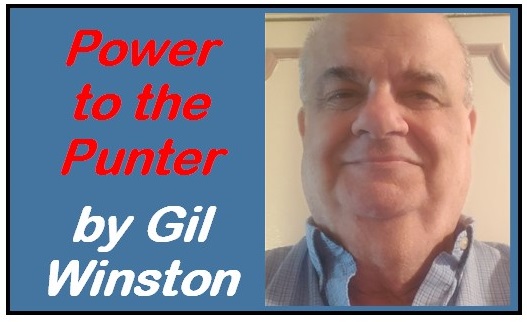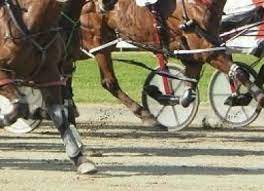Is there a method to my harness racing handicapping madness, or is there a madness to my handicapping method?
As many have noted, there are no predictions in my handicapping analysis articles. It is all about preparing for future races. But why not make predictions? “Put your money where your mouth is, fella!” Of course, there’s a story behind it. There always is.
 It starts from when I first started betting on the harness races, “A long time ago in a galaxy far, far away….” Ok, so it was in the same galaxy, in a place called New York City, but it was a long time ago. I had instant success at this game, and friends at work wanted to know on what horse I was betting at the track, so they could get in on the action.
It starts from when I first started betting on the harness races, “A long time ago in a galaxy far, far away….” Ok, so it was in the same galaxy, in a place called New York City, but it was a long time ago. I had instant success at this game, and friends at work wanted to know on what horse I was betting at the track, so they could get in on the action.
Before I get into the telltale incident, I need to digress to a quick anecdote from that era regarding a different race. In this fateful race, I thought a horse named Dillman was as sure as death and taxes. I have no recollection if anyone gave me their money to bet on the horse, but I did announce, “Dillman is so much the best, that if he fell down, he would get up and still beat this field.” Alas, he did not get up. The ensuing jokes were a source of amusement for quite some time.
But now, the incident. There was this horse who I believed had a big chance, and many of my friends gave me their money to bet on him when I went to the track. So off I went. But as the race came up, I wasn’t so sure. I don’t remember if there was a scratch that changed the dynamics of the race, or if I did not like what the horse looked like, or some other horse got a big driver change, but my love of the horse disappeared (not only did we not have cellphones, but pay phones were turned off at the track during the races).
I did not think it was impossible for the horse to win, but it was no longer my top choice. Now what do I do? I felt obligated to bet my money on the horse on which my friends had given me their money. I have no recollection of what I did or who won that race, but I remember the pressure of that decision, and would not let it happen again. I never took any money from anyone to bet on a horse I liked.
If someone wanted to bet on something I was recommending, they would have to come to the track with me in case I changed my mind. Through the years, I have always been open with my selections with friends, and was willing to take their money to bet my selections with me – but only if they were there with me.
I spend a lot of time handicapping before the races start. This is a preliminary analysis. No final decision is made.
Here are just a few of the things you observe before making final decisions. These days, more so than in days past, hot and cold trainers affect decision making. Know that hot and cold is frequently a single day observation. A horse winning or losing is not part of the process in determining if the trainer is hot or cold. It is all about the trainer’s horses racing better or worse than form.
A winning horse can be unimpressive with a beneficial trip, while a horse may race monstrously and finish last.
Shippers are a lot more common now than they were in the past, and it is not uncommon to have shippers from the same race at a different track, end up in different races at the track in which you are betting. Learn from the results of the first horse of the night.
Then there are the many possible driver observations. Sometimes, you can pick up on drivers in a funk or en fuego. I remember one well-known driver who would, on occasion, have words with his girlfriend in the paddock. I always expected an ohfer from him after witnessing that confrontation.
While I am rarely in the paddock anymore, there is so much more you can see from the grandstand or be lucky enough to pick it up online. Online, the video needs to be on the right horse at the right time or you have no idea. Drivers may not look right sitting in the sulky. Back trouble? You also want to note drivers looking at the tote board as they “casually” glance in that direction. Familiarity with driver idiosyncrasies separates the driver who looks over all the time, as opposed to the ones that do it occasionally. While this does not tell me they will win, it tells me that they will drive aggressively. Sometimes that leads me to play a different horse who I believe will benefit from the observed driver’s probable aggressive tactics.
Many drivers have tells. That is a poker term which indicates that body language is giving away the beliefs of the driver. Without going into details, one of the tells is what I have labeled, the pee-pee dance. You should understand what that means. The key to tells is that the drivers have no idea they are telling the handicapper a story. Frequently I will inform those nearby that the driver “thinks” he will win, and expect an aggressive drive. Again, if you disagree with the driver’s opinion, this may lead you to play a closer who will benefit from the aggression of the driver who thinks he is much the best.
Another major factor is the score down. Some drivers practice leaving that gate during that warmup. Easier to see on a half-mile track. So much is learned from watching this activity, and it helps immensely to know the individual driver’s M.O. after this practice run.
Merritt Dokey was a leading catch driver in New York. We called him “Last Race Dokey” because of his high win percentage on the last race. Speaking of last races “back in the day,” Del Insko was one of the best. But he had one idiosyncrasy that you could not anticipate during preliminary handicapping. If Insko did not win a race all night, he would almost always try to wire the field in the last race.
Well, then. If the purpose of the analysis articles is not to predict winners on a given night, why is the identification of winners who had previously been identified as receiving a score included in the report? I am clear that these plus performances in a given race are not the only handicapping angles.
Because identifying that which is hidden from your competition (yes, pari-mutuel wagering is a competitive game) is the most important of all the factors, and as regular readers of the analysis know, the payoffs are frequently generous. Maybe playing all the scored horses the next time they race, would be profitable. I don’t know. That would be a technical system, and that is something I do not do. I am not a technician. I am a fundamentalist.
I strongly recommend giving extra consideration to horses that are scored in qualifiers. Few qualifier watchers know what is important, and so many handicappers dismiss qualifiers off of long layoffs. So often you get serious value because the “he may need a race” crowd is large and in charge of the odds. I submit that a qualifier is a race. Most horses do not know the difference. Just say ‘thank you’ for the double-digit payouts that abound.
Oh, how we wish that we could return to the days when horses had to qualify if they hadn’t raced in 30 days. What we learn by watching qualifiers is the single biggest edge harness racing players have over thoroughbred players. Knowing what to look for in qualifiers is a skill that few possess.
Power to the punter.
by Gil Winston, for Harnesslink

 USA
USA Canada
Canada Australia
Australia New Zealand
New Zealand Europe
Europe UK / IRE
UK / IRE


